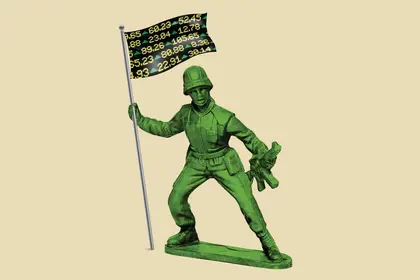Russia is losing the war in Ukraine, economic analyst Tim As writes in a commentary for Barrons. “If President Vladimir Putin’s initial goals were to decapitate the government in Kyiv, impose his own regime therein, demilitarize the country, and stop its Western orientation, then eight months in, the invasion has clearly failed.”
Here is his take summarized in his own words.
JOIN US ON TELEGRAM
Follow our coverage of the war on the @Kyivpost_official.
A total collapse of Russian forces in Ukraine now seems possible. Putin is faced with three limited options. Each would affect markets
First, the wise thing for Putin to do would be to quickly sue for peace. But with Ukraine on the front foot, Kyiv seems in no mood to negotiate until it at least pushes Russia back to positions as of Feb. 23, invasion day.
Second, a much more optimistic scenario involves Ukraine winning, and Putin losing power, most likely via an internal coup. If this happens, and Putin leaves power, sanctions will be moderated. Markets are likely to rally hard on any such outcome, as the prospect will reopen investments into Russia.
The third and obviously worst-case scenario is that Putin could carry out his nuclear threat. He may use tactical nuclear weapons to try to halt any Ukrainian offensives and again force the Ukrainian side to the negotiating table. However, as military specialists have highlighted, the use of tactical nuclear weapons is difficult in practice.
An outcome that involves nuclear war is unlikely, but obviously a nuclear attack by Russia would be a huge security event globally, making the world instantly more uncertain and risky. If Russia turns to nuclear action, the global markets would probably be sent into a tailspin, with flight to quality assets.

Israel Offers Seized Russian Weapons From Hezbollah Raids to Ukraine
Which of these three options comes to pass, Ash concludes, regrettably, rests almost entirely with Vladimir Putin.
Tim Ash is the emerging markets senior sovereign strategist at BlueBay Asset Management.
See the full commentary here.
You can also highlight the text and press Ctrl + Enter










